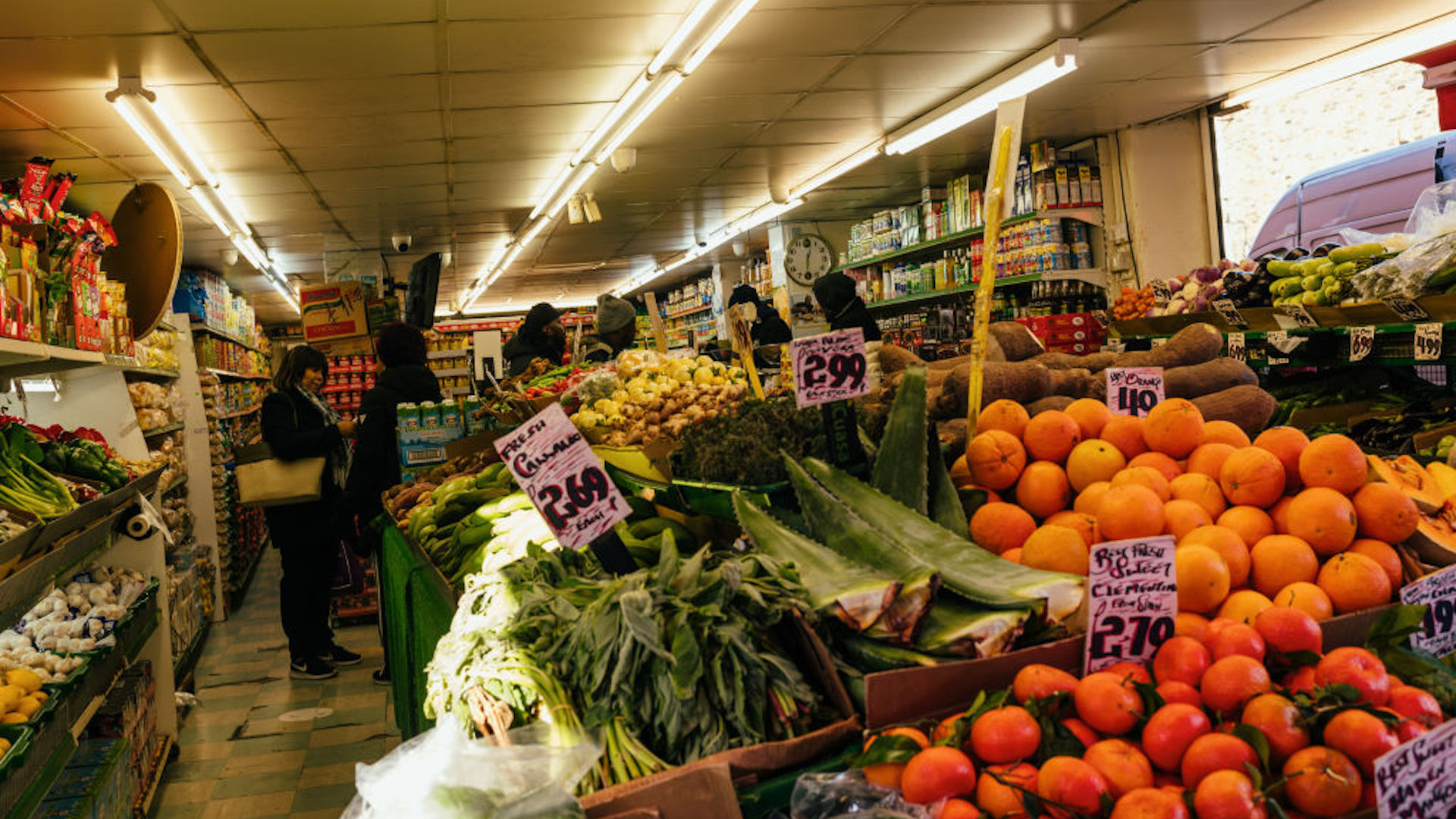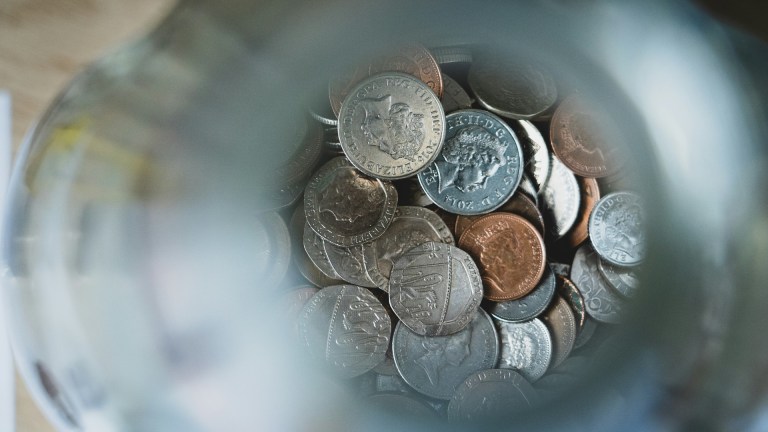What actually is inflation? And what does it mean for me?
The term “inflation” is the technical way of describing the rate at which prices are rising. But what does it actually mean and how does it impact your life? If you’ve noticed the cost of a bunch of bananas or a pack of loo rolls is still getting more expensive and your household bills keep on soaring, that’s because inflation has been high for, well, far too long at this point. The higher the inflation rate, the faster your bills increase.
The inflation rate of 3.2% in March 2024 means prices have risen by 3.2% on average in comparison to what they were in March 2023. Prices are still increasing and will continue to do so as long as inflation is in the positive figures.
If you want to see just how much more expensive your shopping basket is going to be as a result of inflation, you could use a price comparison website like Trolley. It has a grocery price index with data showing how much all your basic supermarket items have increased in recent months.
Will prices in the UK ever come down?
The simple answer is that UK prices across the board will probably never come down – and almost certainly not by very much – but our wages are supposed to keep up with rising prices to make us less likely to feel the pinch.
For prices in the UK to fall, inflation would need to go into negative figures, often called deflation. That is a rarity. The last time this happened was in 2015 when prices fell by a grand total of 0.1% because of a sudden drop in the price of oil.
Before that was in 2009, during the global financial crisis, but economists disagree on the details as only one measure of prices was negative. You have to go back to 1960 to find another example of deflation.
But don’t panic. The cost of living crisis will come to an end eventually. Prices will stabilise and grow more slowly and real wages should catch up, with progress being made on this already.
New ONS data shows that annual earnings growth, excluding bonuses, was 6% in the three months to February compared with a year earlier. After taking inflation into account, real pay growth was 2.4%, the highest since July 2021.
However, as the Joseph Rowntree Foundation has pointed out, post-tax earnings for the average family remain on course to be £380 per year lower at the beginning of 2025 compared with the start of 2021 – and this gap is not expected to close until 2029.
There has been a rise in unemployment – companies were hit by high interest rates and more than 200,000 job cuts were made between May and July last year.
In February this year, the UK economic inactivity rate for those aged 16 to 64 years was 22.2%, which means about 275,000 more people than a year ago.
People face debt which has built up as they have struggled to cover soaring costs. A record 6.7 million people in the UK fell behind on bills in the six months up to March 2024.
Interest rates have also led to mortgage payments rising. And as a consequence of this, landlords have increased rents. Many people face higher costs for housing.
When will the cost of living crisis end?
The cost of living crisis will be over once prices stabilise and wages have risen enough to match. With record rises in wage growth and inflation easing, the cost of living crisis “appears to be coming to an end”.
The Office for Budget Responsibility has said that living standards are expected to recover more quickly than previously forecast. The financial year 2022-203 saw the largest year-on-year drop in living standards since records began in the 1950s. But it now forecasts real household disposable income per person to recover its pre-pandemic peak by 2025-26, two years earlier than in the November forecast.
But campaigners warn that the “real damage has already been done”.
Megan Davies from the Stop the Squeeze campaign said: “Assuming that lower inflation means the cost of living crisis is ending is the kind of breathtaking complacency that voters will punish at the ballot box in the local elections next month.
“We know that in the real world, the cost of essentials is still unbearably high, incomes have barely moved in real terms for years and families are looking to the future with a deep feeling of insecurity.
“Instead of assuming that the cost of living crisis will solve itself, we need urgent action to address the immediate crisis and to fix the structural problems with our economy that have got us into this mess. If we don’t change course then barely making ends meet will become the new normal for millions of families.”
The Bank of England predicted that inflation will be back to “normal levels” within the next few months, by which they mean around 2%, but then it will rise slightly. An inflation rate of 2% is the target the government has set. But it doesn’t mean the cost of those essentials will come down. They’ll keep on rising.
Pranesh Narayanan, research fellow at IPPR, said: “Today’s welcome news shows inflation is going in the right direction, but we can’t be complacent about the state of the economy.
“Inflation is coming down, but unemployment is ticking up. We still have record levels of people who are too sick to work, a cost-of-living crisis and stagnant growth.
“It’s time for the Bank of England to cut interest rates and the government to come up with a serious plan for public spending and investment. The priority should not be more tax cuts.”
Will energy bills come down?
Energy bills have dropped in April 2024.
Ofgem’s new energy cap means average households will pay an average of £1,690 each year for their electricity and gas from April, the lowest level in two years.
That’s down from Ofgem’s price cap of £1,928 in January.
Every three months, the energy regulator reviews and updates the price cap to reflect changes in the cost of energy and inflation. It’s intended to ensure bills are fair.
But it doesn’t mean that your household bills can’t exceed £1,690 – some households will pay more and others less. It all depends on how much energy you use, as well as your circumstances like where you live and the energy efficiency of your property.
“The price cap does not protect those who simply cannot afford the cost of keeping warm,” Adam Scorer, the chief executive of National Energy Action, previously said. “That requires direct government intervention through bill support, social tariffs and energy efficiency.”
The government’s energy rebate scheme, a discount on household energy bills, ended in March last year. This had been a lifeline to many people, helping them save around £66 each month.
Simon Francis, coordinator of the End Fuel Poverty Coalition, said: “Three years of staggering energy bills have placed an unbearable strain on household finances up and down the country. Household energy debt is at record levels, millions of people are living in cold, damp homes and children are suffering in mouldy conditions.
“Everybody can see what is happening in Britain’s broken energy system and it is time for politicians to unite to enact the measures needed to end fuel poverty. This includes cross-party consensus on a long-term plan to help all households upgrade their homes and short-term financial support for households most in need.”
Will house prices come down?
House prices soared to record highs last year but rising interest rates and the cost of living crisis sent prices falling in recent months.
February data shows that prices are now stabilising. On average, house prices have risen 0.4% since January 2024. There has been an annual price fall of -0.2% which makes the average property in the UK valued at £281,000.
Average rents in England have increased by £107 per month, and by £207 per month in London between March 2023 and March 2024.
Dr Maya Singer Hobbs, senior research fellow at IPPR, said: “Today’s statistics show a mixed picture. UK house prices have been falling since highs in 2022, but are showing signs of stabilising. Rents, on the other hand, continue to increase with the UK average rent going up 9.2 per cent over the past 12 months, and more than 11 per cent in London.
“These stats show that whether you are renting or buying, housing is too expensive. If the government really wanted to create more truly affordable housing, they need to fix the broken planning system, reform the land market and speculative housebuilding model, and invest in building good quality social housing.”
Read more about whether house prices will go down here.
Are prices rising at the same rate for everyone?
Unfortunately not. Prices are rising even faster for poorer households. This is because the costs of essentials are soaring at higher rates, and low-income families typically spend a greater proportion of their income on these items.
Food and non-alcoholic drink prices have risen by 4% in the year to March, which is still higher than the overall inflation rate.
The Resolution Foundation has found that poorer families are most affected by surging food prices as they spend a far greater share of their family budgets on food (14%, compared to 9% for the highest-income households).
As a result, the effective inflation rate for the poorest tenth of households is around 2% higher than it is for the richest tenth of households.
Benefits are not stretching far enough to help those on the lowest incomes afford the basic essentials.
The Joseph Rowntree Foundation posted on X: “We shouldn’t leave families waiting years for already inadequate benefit levels to catch up with inflation. The government must build an essentials guarantee into universal credit to ensure that people always have enough to afford the essentials.”
The world’s five richest men have £688 billion of wealth between them. That’s boomed by £367bn in the last five years.
Meanwhile, the wealth of the poorest 60% – encompassing nearly five billion people – has fallen. What does this all mean exactly? The rich are getting richer, and the poor are getting poorer.
Do you have a story to tell or opinions to share about this? We want to hear from you. Get in touch and tell us more.
Your support changes lives. Find out how you can help us help more people by signing up for a subscription









